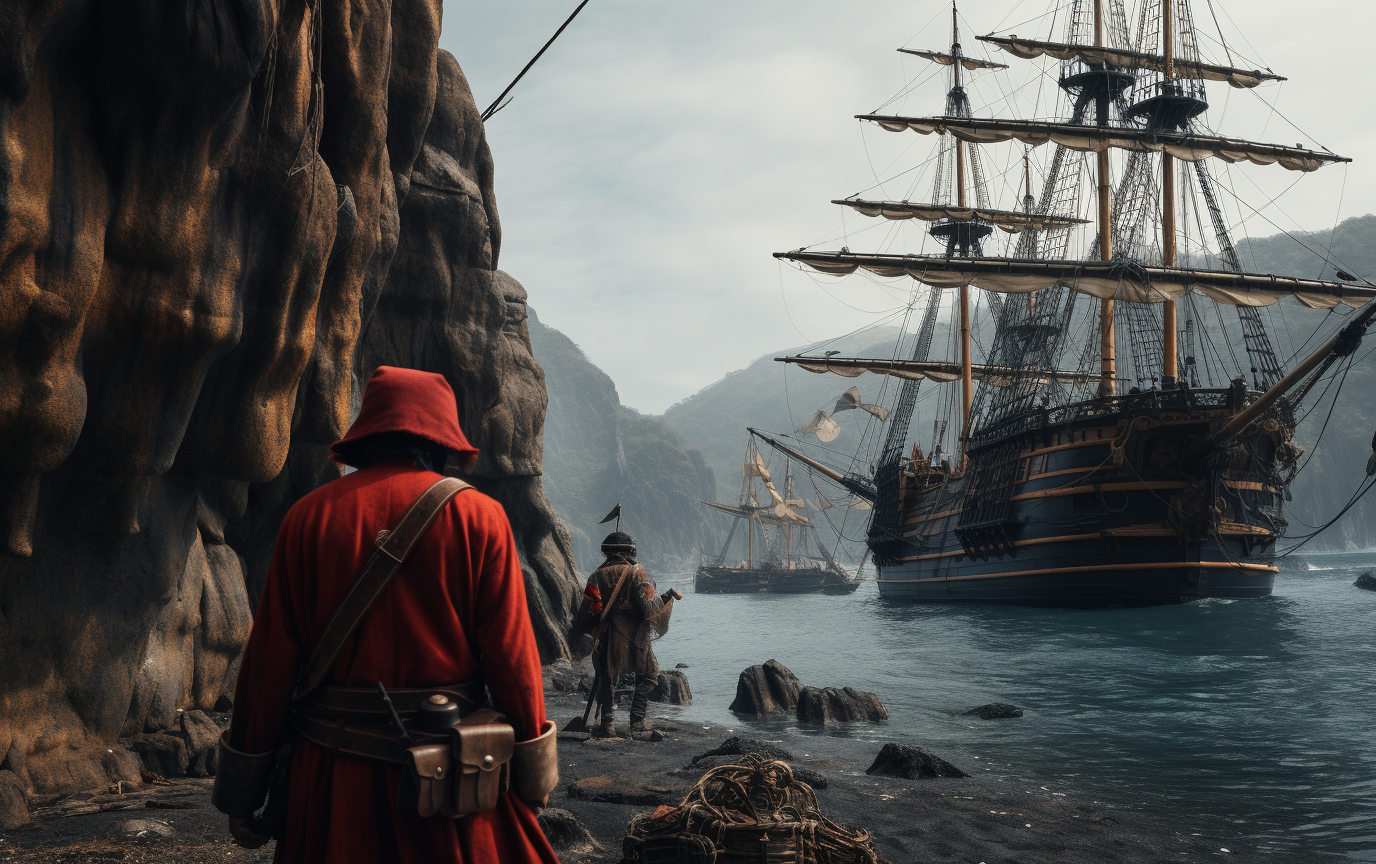
Embark on a fascinating journey through history as we unravel the captivating era known as the Age of Exploration.
In this guide, we will delve into the beginnings of this remarkable period, shedding light on the courageous voyagers and the untold discoveries that shaped the world.
Here are 10 intriguing facts that will transport you to a world of exploration and adventure.
How did the Age of Exploration begin?
The commencement of the Age of Exploration, also acknowledged as the Age of Discovery, initiated in the 15th century.
This epoch was ignited by an unquenchable thirst for knowledge, a pursuit of wealth, and the ambitious drive to unveil novel trade routes.
Unfolding in the midst of technological strides in navigation, this transformative era was catalyzed by the introduction of instruments such as the astrolabe and compass.
These innovations played a pivotal role, endowing explorers with the capability to transcend the familiar confines of their horizons.
10 Facts About the Age of Exploration

Fact #1: The Spice Route Obsession
During the Age of Exploration, the pursuit of valuable spices like pepper and cinnamon drove explorers to seek new routes to Asia.
This endeavor resulted in the discovery of sea routes, exemplified by Christopher Columbus’s renowned journey in 1492.
The quest for spices not only fueled maritime exploration but also reshaped global trade dynamics.
Fact #2: The Astrolabe’s Guidance
Navigation during the Age of Exploration heavily relied on the astrolabe, an ancient instrument.
Sailors used this tool to determine their latitude at sea, providing a crucial aspect of navigational precision.
The astrolabe played a pivotal role in enabling explorers to traverse vast oceans, contributing to the success of their voyages.
Fact #3: Columbus’s Unintended Encounter
Christopher Columbus, while searching for a westward route to Asia, unexpectedly stumbled upon the Americas.
This unplanned discovery in 1492 had profound implications, altering the course of history by connecting the previously unknown continents and initiating European exploration and colonization in the Americas.
Fact #4: Magellan’s Circumnavigation Feat
Ferdinand Magellan’s expedition stands as a monumental achievement in exploration history.
In 1519, Magellan embarked on a journey that would become the first successful circumnavigation of the globe, providing tangible proof that the Earth was indeed round.
Despite Magellan’s unfortunate demise during the expedition, his legacy endured through the completion of the circumnavigation by his surviving crew.
Fact #5: The Treaty of Tordesillas
To manage potential conflicts arising from newly discovered lands, Spain and Portugal signed the Treaty of Tordesillas in 1494.
This historic agreement sought to avoid disputes by dividing the unexplored world into Spanish and Portuguese spheres of influence.
The treaty played a crucial role in shaping colonial territories and establishing boundaries between the two maritime powers.
Fact #6: Vasco da Gama’s Sea Route to India
In a pivotal moment of exploration, Vasco da Gama charted an unprecedented sea route to India in 1498 by sailing around the treacherous Cape of Good Hope.
This groundbreaking achievement not only marked a triumph for Portugal but also opened up new and lucrative trade opportunities with India, reshaping the dynamics of global commerce.
Fact #7: Indigenous Peoples’ Encounter
The Age of Exploration brought about the initial contact between Europeans and indigenous peoples in various parts of the world.
This interaction, though significant, often resulted in tragic consequences for both cultures.
The clash of civilizations, introduction of new diseases, and cultural exchanges were pivotal elements that shaped the complex history of these encounters.
Fact #8: The Search for El Dorado
The quest for wealth fueled expeditions in search of mythical cities of gold, such as El Dorado in South America.
While these cities were never found, the exploration brought about significant geographical knowledge.
Fact #9: Advances in Mapmaking
The Age of Exploration sparked a renaissance in cartography, with detailed maps emerging as a crucial outcome.
Explorers meticulously documented their journeys, contributing to the creation of more accurate maps.
These advancements in map making not only aided navigation during subsequent voyages but also played a pivotal role in fostering a more comprehensive understanding of the world’s geography.
Fact #10: Legacy of Exploration
The enduring legacy of the Age of Exploration is evident in its profound impact on global history.
This era laid the groundwork for interconnectedness, influencing trade routes, cultural exchanges, and political landscapes.
The Age of Exploration, with its spirit of curiosity and daring voyages, marked the beginning of a new era that shaped the destinies of nations for centuries to come.

Additional facts of the Age of Exploration
Motives and Drivers
- Trade: The desire for new trade routes and lucrative commodities, particularly spices from the East, fueled exploration. These voyages opened up new markets and transformed global trade patterns.
- Religion: The spread of Christianity and the desire to convert new communities played a significant role. Missionaries accompanied many expeditions, establishing churches and missions in newly discovered lands.
- Scientific curiosity: The quest for knowledge and understanding of the world motivated many explorers. Their discoveries challenged existing geographical and scientific beliefs, paving the way for a new era of scientific exploration.
- National prestige: Competition between European powers fueled ambitious voyages and fueled a race for territorial expansion. Nations sought to claim new lands and establish colonies, expanding their influence and power on the world stage.
Explorers and Discoveries
- Christopher columbus: Though not the first European to reach the Americas, Columbus’ voyages in 1492 sparked widespread interest in exploration and paved the way for further colonization.
- Vasco da Gama: The Portuguese explorer discovered a sea route to India around the Cape of Good Hope, opening up direct trade between Europe and Asia.
- Ferdinand Magellan: His expedition became the first to circumnavigate the globe, proving the Earth was round and expanding European knowledge of the world.
- Hernán Cortés: The Spanish conquistador conquered the powerful Aztec Empire in Mexico, claiming vast territories for Spain and forever altering the course of history.
Legacy of the Age of Exploration
- Globalization: The Age of Exploration ushered in an era of globalization, connecting different cultures and societies through trade, travel, and exchange of ideas.
- Colonialism: European nations established colonies in newly discovered lands, leading to widespread exploitation and displacement of indigenous populations.
- Geographical knowledge: Exploration led to the mapping of new continents, oceans, and islands, dramatically expanding our understanding of the world.
- Cultural exchange: The encounter between different cultures led to the exchange of ideas, technologies, and customs, shaping the development of societies around the world.

Conclusion
The Age of Exploration stands as an epoch marked by audacity, revelations, and an unwavering pursuit of the unknown.
Navigating spice-laden routes and achieving unprecedented circumnavigation, explorers of this era not only reshaped the world map but also left an enduring imprint on history.
As we contemplate this historical chapter, it becomes evident that the Age of Exploration is more than a mere segment of the past; it is a testament to human determination to delve into uncharted territories, push the boundaries of knowledge, and shape the trajectory of global history.
FAQs
The Age of Exploration began due to a desire for new trade routes, wealth, and advancements in navigation technology.
Christopher Columbus, Ferdinand Magellan, and Vasco da Gama were among the key explorers of the Age of Exploration.
The encounter with Europeans had significant consequences for indigenous cultures, often resulting in cultural clashes and changes.
The Treaty of Tordesillas, signed in 1494, divided the unexplored world between Spain and Portugal to avoid conflicts over newly discovered lands.



